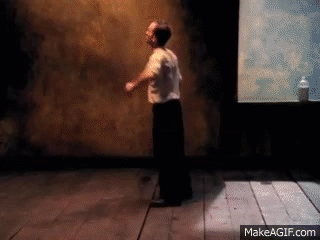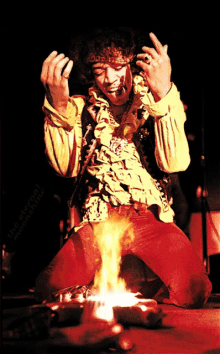So I set off on my journey to become a pastor, and I went to a school at one of the Universities that was affiliated with this flavor of Christianity. I wrote that on purpose too, because a lot of people would fight me on the use of the word pastor. The Church of Christ doesn’t have pastors, it has ministers. And there’s a Bible verse they can point to as to why we use the one word over the other and you need to have the correct opinion about it. Same for musical instruments being used in worship and why the wine Jesus drank was different and that’s why drinking is a sin now. Do you kind of see what I’m getting at? There was so much energy dedicated to the policing of behavior and making sure to always be living “a life worthy of the calling.” But as I started to age, those things felt hollow. All this focus on the correctness of beliefs only felt like it took me away from caring for those that needed me. The Heavenly Father I was being shown seemed to have a bit of a “because I said so” style of parenting.
My family had moved away at this point, but that school was back in the small town I was born in. My view of the town changed as my understanding of my own religion did too. As I grew up, I also noticed that there were two distinct groups in the town, the Christians and the secular folks and the two never meaningfully interacted from my point of view. It wasn’t a strict division by economic standing although the Christians did tend to be made up of a more privileged class that could afford this private Christian university and stayed after graduation. Sure, there were acts of kindness here and there that you could point to as people “being Christ to the world” but those things all happened at a person to person level. I am not saying that is not important. What I am saying is that this 19ish year old kid started to wonder what happened to all the money that a private school and three megachurches with 500+ memberships generated. I knew it didn’t go to the church staff either because my family was broke. The baskets sure did seem full when they got passed around. I’m not saying something nefarious happens in the churches, I am just saying I never received an acceptable answer. It wasn’t going to my family or any other ministers families I knew, and it sure wasn’t going to the neighbor I would occasionally help into his apartment because he would pass out on his stoop. As a matter of fact, some would have just said that his need for my help was actually just the consequences of his sinful living.
The final straw came when I was working at a church in Oklahoma in the summers between my last two years of school. A controversy erupted and dominated my final few months with the church. The scandal: should clapping be allowed in worship while we sing? I think I was 21-22 at the time. The fact that moving in that way by that age felt like an old hat just that much more makes me think I was too young for all the pressure that I’d put on myself. And I was starting to get a more solid sense of what I felt like were the actual social struggles around me. And since I was a pastor, I viewed my job description as “guiding the flock”. So I started bringing up these questions in the sermons I delivered, at which point I figured out people do not appreciate difficult questions from their preachers, they much prefer answers. I started to get talking-to’s from the elders following sermons where I’d ask questions like why “the role of women” seemed to always mean “following men”; stuff like that. These talking-to’s kind of became my Monday morning ritual, I could almost set my watch to them. I was not allowed to deliver sermons anymore after I pointed out in conversation with one of the elders that we had spent months at each others throats about clapping when we sing and I had never heard a congregant even wonder why the church in America is still essentially segregated. It was not an observation that seemed to be appreciated. While I felt good about the work I had done with the youth group and their families, I was done. I felt like I could keep trying to be the caretaker of my community that I wanted to be, but I was going to also have to consistently fight whatever church I was tied with too. I left that church in Oklahoma to wrap up the last little bit of this religious degree that I now knew I was never going to use. I made a couple more attempts at church communities after that, but honestly that’s when I left religion. (If you want my experience of spirituality, you’ve got to buy me a cup of coffee 😉)
A New Path
I stuck around that small town in Arkansas working construction and part-time at a sandwich shop so I could focus my energy on turning my regular, college-aged drinking into a real problem. That is until my roommate started going to grad school to be a therapist. He started going to grad school for Marriage & Family Therapy and I found the stuff he was talking about fascinating. He started talking about systems theory and systemic thinking and it all just tracked with how I made sense of the world at that point. Could this be my chance to help people in their suffering? Being a pastor involved playing church politics and arguing doctrine with people who didn’t actually know enough about theology or philosophy to even have a real position. But now there was this opportunity to help people, and I’m explicitly just supposed to accept them as they are and never force them into living any particular way. It felt like a hopeful shift for me, and for a time, the field of therapy made good on that promise.
After a while, the honeymoon ended though. For various reasons, I dealt with burnout as a therapist. But the most heartbreaking part of this burnout was that I came to experience therapists as quite the “religious” crowd as well. The schools of therapy started to feel as obsessed with the correctness of their doctrines as any Baptist or Episcapalian I had ever met. I became cynical about therapy for the same reason that I couldn’t do religion anymore. There was no spirit in it…
Finding a Soul in Therapy
There’s several ways to say what I mean by that. It’s like when you hear a musician critique something by saying it has no soul. They’re talking about music in its lowest form in my opinion, technical proficiency. Jimi Hendrix was sloppy, messed around with feedback, and played an upside down right-handed guitar as a left-handed player. You can hear imperfection in his music, you can hear a human being playing it. That’s what I was missing at that point. Because the rigidity of all these different models took away the possibility of complexity, just like the rules of religion had. You either fit or you didn’t. If that secure attachment doesn’t make it all better like it says in the books, well then you’re shit-out-of-luck, friend. Or if catching the irrational thoughts, increasing your psychological flexibility, becoming mindfully present, or whatever the model says is the thing doesn’t work, the field just seems to blame the client with no admission of that being what’s happening.

